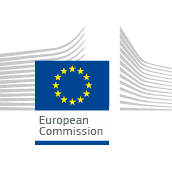
Innovation investments Strand 2a - DIGIT
Deadline: Oct 18, 2022
CALL EXPIRED
CALL EXPIRED
Entrepreneurship and SMEs
Innovation
Health Care
Digital Economy
IT
Industrial Manufacturing
Education and Training
Research
Artificial Intelligence
Digital technologies present an enormous growth potential for Europe. According to the Europe fit for the digital age strategy, this call for proposals targets investments in businesses and administrations. In order to unlock digital growth potential and deploy innovative solutions (both for businesses and citizens), to improve the accessibility and the efficiency of services and bridge the persisting digital divide, the present call under this topic will support interregional investments projects in the following areas:
a) Digital economy and innovation
b) Digitalisation of the public administration
c) Digitalisation of healthcare
At least 70% of the grant must be allocated to investments in companies.
If the proposal is related to digital transition in the field of smart manufacturing, then the applicant should submit the proposal under the smart manufacturing topic 3.
Scope:
Themes and priorities
The present call for proposals under this topic encourages applications in one or more or combination of the following investment areas (a), (b), (c) (non-exhaustive list):
a. Digital economy innovation
- The deployment of innovative solutions for businesses digitalisation and digital services, including the use of artificial intelligence;
- ICT up-take in SMEs applied to traditional and emerging sectors; B2B; B2C; Customer to Customer, including infrastructures and services to support this (digital innovation hubs, living labs, etc.);
- Demonstration of innovative digital technologies in view of the commercialisation of research results and a better integration in EU value chains;
- User driven innovation and valorisation of traceability and big data;
- Companies reinforcing EU cybersecurity value chain and protecting from hacking, ransomware and identity theft;
- “Digital based” open innovation, supporting entrepreneurial discovery processes and cooperation between academia and businesses in the framework of smart specialisation;
- Digital skills for companies adopting innovative digital technologies (upskilling and reskilling) in the framework of investments relevant for Smart Specialisation.
b. Digital transformation of the public administration
- New or significantly upgraded services for e-government, including the take-up of Europe wide interoperable services which improve the efficiency of services delivered by public administrations to citizens, companies and other public bodies by using information and communication technologies such as artificial intelligence and cybersecurity;
- Investments in innovative solutions helping administrations to make services user-friendly, accessible and more interoperable. Those investments might include the demonstration of the validity of new digital technologies in view of the large-scale adoption of new IT systems.
c. Digitalisation of healthcare
- Innovative investments in security of health data across borders (including cybersecurity);
- Investments related to the use of digital tools to stimulate prevention, enable feedback and interaction with the healthcare providers;
- Investments connected to the digitisation of healthcare systems, providing solutions to interoperability issues;
- Investments in digital health infrastructure (needed for demonstration processes), telemedicine, m-health and other innovative solutions for personalised medicine;
- Investments related to the acquisition of digital skills needed for the adoption of innovative technologies in healthcare.
Short-term
- Innovative technologies tested and adopted by companies and public administration
- Deployment of innovative solutions improving businesses confidence, competences and means to digitalise and grow
- Contribution to digitisation and health systems transformation, through various types of innovation and the supply of IT services
Medium-term
- Increased companies productivity and efficiency
- Improved user-friendly, accessible and interoperable public services
- Improved level of digital skills
- Improved EU innovation capacity and competitiveness
Long-term
- Improved way of living and of doing business
- Increased social and territorial cohesion as well as personal well-being
- Improved education and vocational training systems (indirectly).
Public link: Only for registered users
Get Access to the 1st Network for European Cooperation
Log In
or
Create an account
to see this content
1
Up2Europe Experts
on This Call
Expert - Project Development & EU Funding Consultant in participatory processes
MY SUCCESSFUL EXPERIENCES IN COMMUNITY GRANTS


 Interregional Innovation Investments Instrument (I3)
Interregional Innovation Investments Instrument (I3)
Please Log In to See This Section